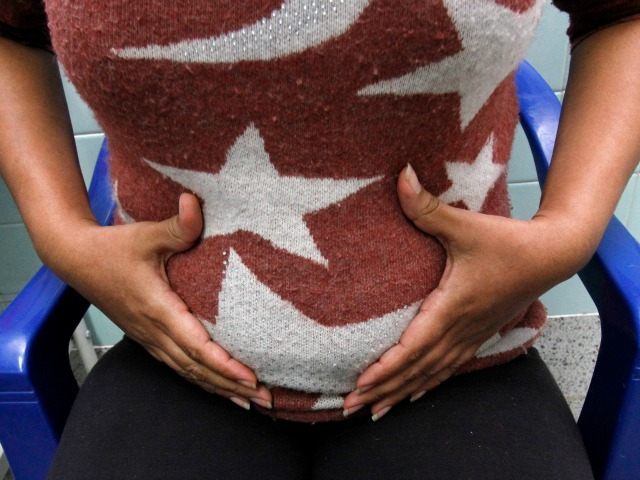Jamaican authorities, in response to the mosquito-borne Zika virus, are urging young women to delay becoming pregnant for the next six to 12 months, but their advice is falling on deaf ears.
Many Jamaican women of fertility age are ignoring the message, reports the Jamaica Observer, citing Dr. Sandra Knight, chair of the National Family Planning Board (NFPB).
“I’m going to be honest with you. I don’t think the message has hit home hard yet, because when I listen to the comment of the ladies, they are more like ‘Wow, what? An advisory? That sounds extreme.’ Those are the comments I am hearing, so I’m not getting the feeling that they are taking it as serious as they ought to and I think they should,” declared Dr. Knight.
“I have not seen an increase in the anxiety of mothers. I’m not saying there isn’t, but I really have not seen it. Not even in my private practice do I get the feeling that women are a bit more anxious about having babies, and women who are attending our clinical services, I don’t find that they are more anxious,” the NFPB chair added.
The first case of Zika virus was confirmed by the Jamaica Ministry of Health (MOH) last Friday afternoon, but the country has not been added to the list of “Areas with Zika” maintained by the U.S. Centers for Disease Control and Prevention (CDC).
A four-year-old Jamaican child contracted the disease, but has since recovered, reports CTV News. The child traveled to Texas prior to showing symptoms on January 17, adds the report.
“Authorities are investigating the case in hopes of determining the source of infection,” notes the news outlet. Both Texas and Jamaica are home to the Aedes aegypti mosquito, which carries Zika, among other diseases.
Jamaican authorities are reportedly stepping up prevention efforts in the Portmore, St. Catherine area where the child resides.
Despite the first Zika case being confirmed, many women of fertility age are ignoring warnings to take precautions against the dangerous disease.
Dr. Daryl Daly, an obstetrician-gynecologist (Ob/gyn), is quoted by the Jamaica Observer as saying, “Heeding the advice of the MOH will not be easy for many women.”
The Jamaica Observer sounded the alarm reporting, “When the virus comes it will be pandemonium and people may then, with the help of public education, understand its full implications.”
Jamaica Observer notes:
Although the Ministry of Health (MOH) has advised women to delay becoming pregnant for the next six to 12 months, and has appealed to those already pregnant to take extra care to prevent being bitten by mosquitoes due to the link between the Zika virus (ZIKV) and microcephaly — a condition where the infant has an abnormally small head associated with underdevelopment of the brain — Dr Sandra Knight has said that many women of fertility age are not taking the messages seriously.
Dr. Daly, the Ob/gyn, pointed out that the reaction to the ministry’s advisory varies by socioeconomic status.
“The virus is relatively new, and what I find is that the five or six patients with advanced pregnancies who I see in my private practice have been calling me and asking about the Zika virus and what effect it will have on them, but in the public system it seems to me that a lot of the women are approaching it in a laissez-faire manner,” Dr Daley said.
“Today (Friday) I was seeing a patient at the hospital and she said, ‘Doctor, I don’t care about any CHIKV, ZIKV or ‘dickv’. Right now is a child I want.’ Another said she has three girls and she wants her boy. So it’s kind of interesting how the variations in caution are across the different classes,” he added.
The Jamaica Observer visited on clinic in Kingston.
“Some pregnant mothers gave mixed reactions to the pending Zika virus and said while they are indeed worried, the most they can do is hope to give birth before the virus comes to the island.” it reports.
A few said they are not worried. Meanwhile, “Others confessed that though fearful, they did not fully understand the problems associated with getting pregnant within the next six to 12 months.”
“At a post-Cabinet press briefing at Jamaica House last week, Health Minister Horace Dalley stated that there is a link between ZIKV and microcephaly, which has been observed in more cases of women being infected during the first months of pregnancy,” notes the Jamaica Observer. “He further stated that babies who develop the condition in the womb may not live full term, may be born prematurely, may be still born, or may survive but with lifelong disability.”
There is no vaccine or preventing drug to combat the virus, according to the CDC, which shows that the Zika virus has spread to 24 countries and territories, including 8 in the Caribbean alone.
The 24 countries and territories are: Barbados, Bolivia, Brazil, Cape Verde, Colombia, Dominican Republic, Ecuador, El Salvador, French Guiana, Guadeloupe, Guatemala, Guyana, Haiti, Honduras, Martinique, Mexico, Panama, Paraguay, Puerto Rico, Saint Martin, Samoa, Suriname, U.S. Virgin Islands, and Venezuela.
“Zika virus is spread to people through mosquito bites. The most common symptoms of Zika virus disease are fever, rash, joint pain, and conjunctivitis (red eyes),” explains CDC. “The illness is usually mild with symptoms lasting from several days to a week. Severe disease requiring hospitalization is uncommon.”
Health authorities in Jamaica, Colombia, and El Salvador have advised women to delay becoming pregnant in response to the Zika outbreak in the Americas.
Meanwhile, leftist organizations and government officials are pressuring women in the Americas to embrace abortion as a solution to the Zika virus.

COMMENTS
Please let us know if you're having issues with commenting.